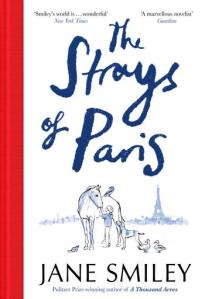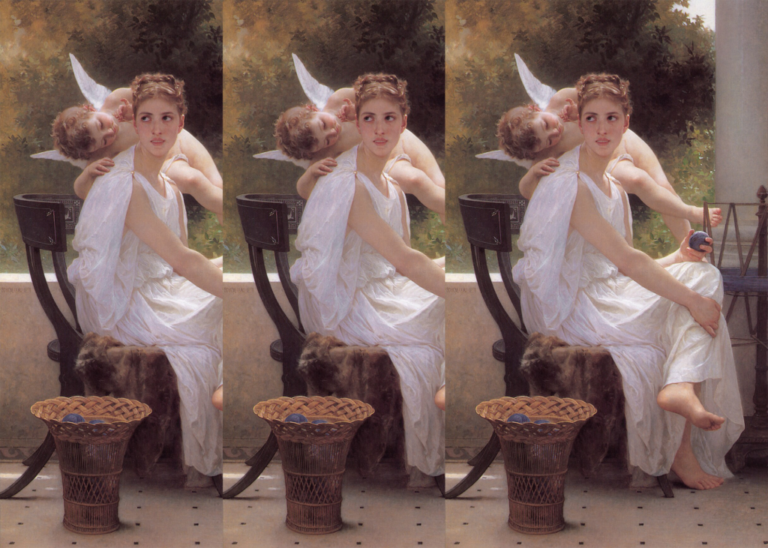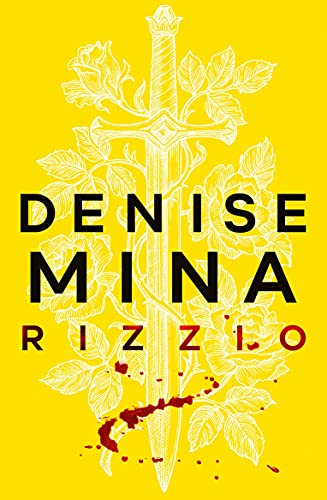Published by Mantle
Really we are all a little bit Paras, a little bit Frieda, a little bit Raoul and a little bit Kurt. We are looking for a sense of belonging, of love, in whatever form it may arrive and of safety. And we are all a little bit Etienne, often finding that happiness and sense of belonging perhaps where we least expect it.
When Paras or Perestroika to her humans, nudges through an unlatched gate, taking with her a bag that just happens to be full of winnings following her victory at a race, she unlocks the door to a new world. As she canters and gallops she moves further away from her safe stall and closer to the unknown. However, the unknown will lead her to Frieda, a German Short Hair Pointer, a raven called Raoul, two noisy ducks and a black rat looking for love. It will also lead her to Etienne, a young boy who lives with his 97 year old great-grandmother in a large house, sheltered from the world, and from friends of his own.

There are lessons learned by the humans. The ones that interact the most with the animals have all done so without telling others. They have their suspicions about where the animals may or may not live. It is not until the end of the tale that they question whether the silence they held could have been lifted a little but also lead them to realise how their interactions have altered their lives in small, permanent ways.
There is the risk that a story with animals as it’s key characters could border on childlike. It is there, lurking that a child would appreciate this story as much as an adult and what shines through is a childlike wonder at the magic of nature. It opens the readers eyes to how humans can be viewed by other species, at their whims and fancies, their need to stop and stare without really seeing what is around them.
Source – review copy
This is a gentle tale. Don’t expect high action scenes or big revelations. What is revealed slowly, is that friendship can form no matter where, and under unusual circumstances. True friendship and love doesn’t see differences, or rather it embraces them. Etienne doesn’t see a pest when he sees Kurt, the black rat. He instead sees another friend, a beautiful creature with soft, velvety fur. Raoul, the raven, is at first high-handed, fact filled and verbose. He learns through the softly spoken Paras, and the forever mumbling Frieda, to reign in his flights of fancy, and in doing so accepts that he doesn’t need the finest nest in Paris to be happy. Sid and Nancy, mallards who the animals meet in the park, realise that Nancy doesn’t need to accompany Sid on his flights south, and Sid is most happy when back with Nancy and whichever brood of chicks have hatched in his absence.
Paras is a curious horse. She loves to run in places because she loves to run. She is curious, wanting to know what is beyond the finishing line. It is that curiosity that takes her to Paris. That leads her to Frieda, a dog without a master. It is what sends her down quiet alles at night, that makes her stop at the bakery and provides Anais, the baker, to experience a magical interaction with a horse she thinks could be an apparition. Paras settling in near the Eiffel Tower, leads to Pierre, the head gardener, looking out for the horse, who he knows is there as he clears up after her, and spots hoof prints in the mud and snow. Her curiosity and attitude of going with the flow leads her to Etienne, the lonely orphaned 8 year old. He has only his deaf and blind great-grandmama to look after and to be looked after by. Madame, is worried about what will happen to Etienne after she dies but is also of an age where she has lived so long she has both all the time in the world and no time at all in which to sort out her affairs.
Paras is a spirited young racehorse living in a stable in the French countryside. That is until one afternoon when she pushes open the gate of her stall and, travelling through the night, arrives quite by chance in the dazzling streets of Paris.
She soon meets a German shorthaired pointer named Frida, two irrepressible ducks and an opinionated crow, and life amongst the animals in the city’s lush green spaces is enjoyable for a time. But everything changes when Paras meets a human boy, Étienne, and discovers a new, otherworldly part of Paris: the secluded, ivy-walled house where the boy and his nearly one-hundred-year-old great-grandmother live quietly and keep to themselves. As the cold weather of Christmas nears, the unlikeliest of friendships blooms between human and animals.
A lovely tale about friendship. We could learn a lot from these animals.
But how long can a runaway horse live undiscovered in Paris? And how long can one boy keep her all to himself? Charming and beguiling in equal measure, Jane Smiley’s novel celebrates the intrinsic need for friendship, love and freedom, whoever you may be . . .
Publication date – 18 February 2021
Jane Smiley is a novelist and essayist. Her novel A Thousand Acres won the Pulitzer Prize and the National Book Critics Circle Award in 1992, and her novel The All True Travels and Adventures of Lidie Newton won the 1999 Spur Award for Best Novel of the West. She has been a member of the American Academy of Arts and Letters since 1987. Her novel Horse Heaven was short-listed for the Orange Prize in 2002, and her novel, Private Life, was chosen as one of the best books of 2010 by The Atlantic, The New Yorker, and The Washington Post.
There is a magical element to the story, there’s bound to be when animals talk to each other and are the focus of the tale. I always find that books set in Paris hold a magic of their own, a hint of otherness. This is even more so here, when the Paris that we see is one at night, when the humans are in bed and the other animals come out to explore the city.
About the Author






